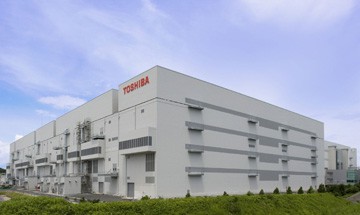According to the Wall Street Journal, Toshiba is in advanced negotiations with chip-builder GlobalFoundries to outsource a significant chunk of its semiconductor production.
Apparently, the deal would cover large scale integration (LSI) chips, which tend to be smaller than 100,000 transistors. These are relatively simple compared to today's cutting edge memory and microprocessor chips, which can comprise tens of billions of transistors.
Although GloFo is a prime candidate to take on this deal, WSJ reports that Toshiba's arch-rival in the memory business, Samsung, is also in the running, as well as a number of other companies.

The problem for Toshiba is that construction and maintenance of a fab is very expensive. Any money spent on this would by money that it wasn't spending on manufacturing and developing memory, which has become a massive area of growth for the company.
With its NAND Flash showing up in an increasing number of highly desirable smart devices, Tosh has managed to drive its earnings through the financial crisis. As a result of significant investment in this part of its business, the company currently stands as the world's second largest memory manufacturer behind Samsung.
A Toshiba spokesperson coyly told the WSJ that "we are talking to several companies and Samsung and GlobalFoundries are among them," but failed to offer any more details. However, GlobalFoundries CEO Doug Grose suggested to Nikkei business daily (via Reuters) that the deal was all but complete.
The source also suggested that the chip-builder might take on the more advanced requests using the latest technologies, while Samsung will handle low-cost fabrication. Either way, it would free up Toshiba's engineers to focus on designing the next generation of memory chips.













